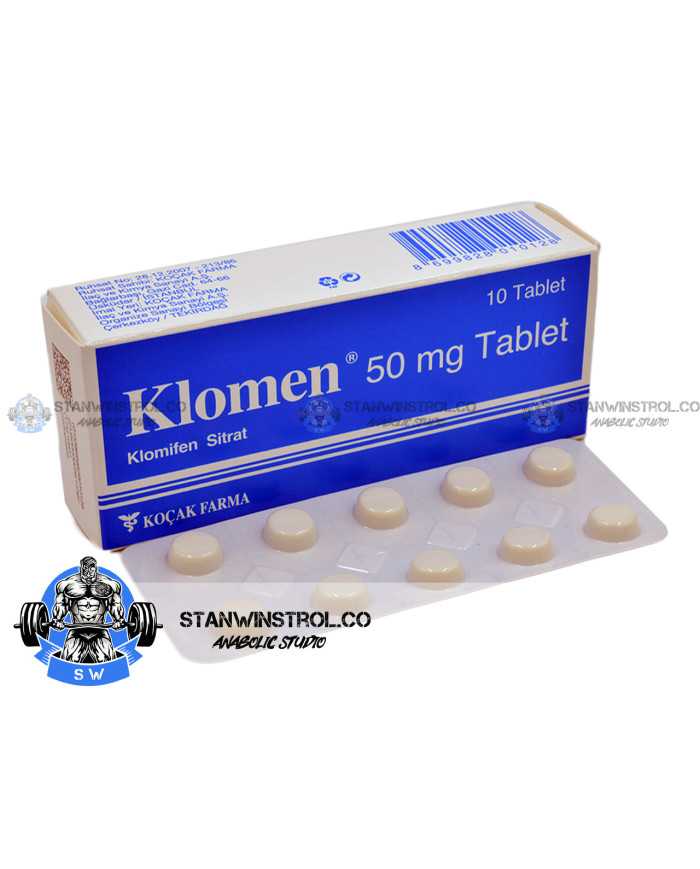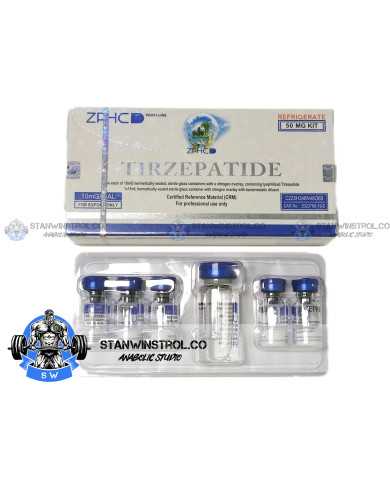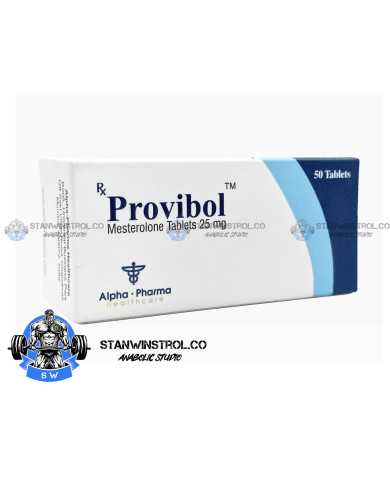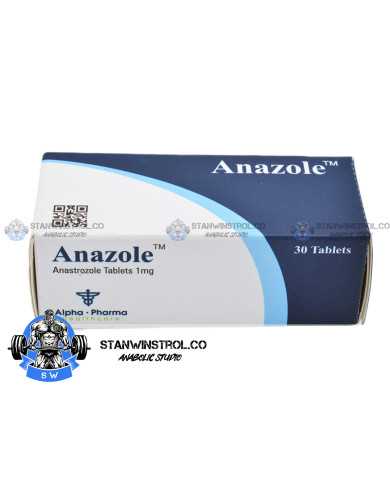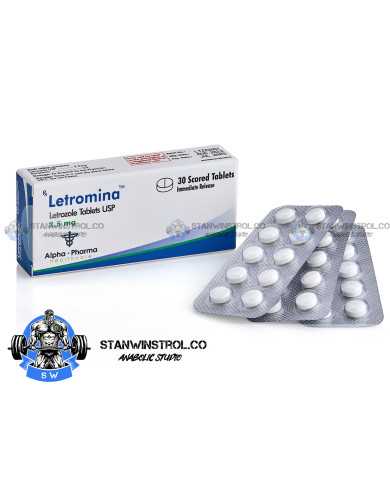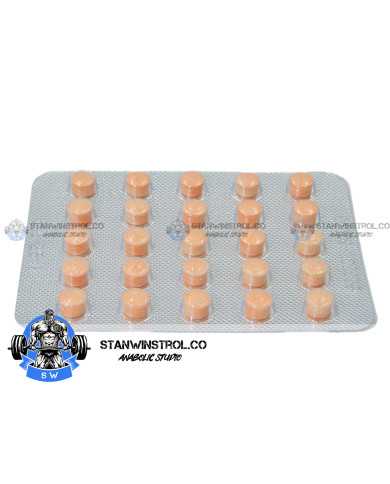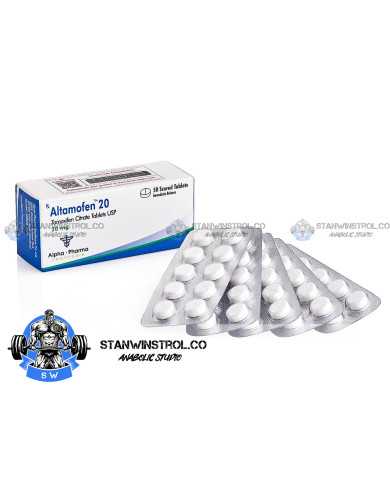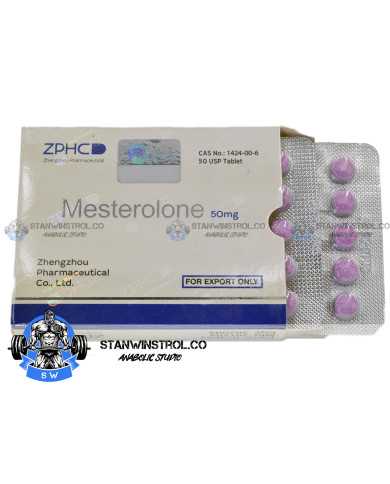Clomid (Clomiphene Citrate) belongs to a category and class of drugs known as selective Estrogen receptor modulators (SERMs). Selective Estrogen receptor modulators belong to an even broader class of drugs known as anti-estrogens. The other subcategory of drug under the anti-estrogens category is known as aromatase inhibitors (AIs), such as Aromasin (Exemestane) and Arimidex (Anastrozole). AIs and SERMs make up anti-estrogens. Aromatase inhibitors differ greatly from SERMs in their action and how they deal with the issues of estrogen control. The misunderstanding that SERMs, such as Nolvadex and Clomid, serve to lower estrogen levels must first be addressed before delving into any further details.
This is a persistent rumor among the anabolic steroid using community that has begun to erode as of late, but the rumor still persists. SERMs serve to block the action of Estrogen at the receptor sites in breast tissue by occupying the receptor sites in place of Estrogen so that Estrogen itself cannot exert its effects there through receptor site binding. Conversely, SERMs will also act as Estrogens at receptor sites at other cells in other areas of the body (the liver, for example in Nolvadex’s case). SERMs do not lower circulating levels of Estrogen in blood plasma. Aromatase inhibitors serve to do this by eliminating the production of Estrogen through binding to and disabling the aromatase enzyme, which is the enzyme responsible for the conversion (or aromatization) of androgens into Estrogen.
Clomid was developed and approved for use in the early 1970s for the treatment of female infertility (and later on subsequently expanded to treating male infertility as well). Not too long after its release in the United States, its popularity and use spread internationally where, like Nolvadex, its popularity and rate of use is so massive that it is widely and freely available in the majority of countries and regions across the world under an almost infinite number of brand names as well as generic products. Its popularity and cheap cost make it a very easily attainable compound for both medical use as well as off-label use for the anabolic steroid using community.
Clomid, although it is classified as an anti-Estrogen, is actually utilized for the treatment of female infertility resulting from ovulation failure (anovulatory infertility). Although Clomid is a very close relative to Nolvadex with both belonging to the SERM category of drugs, Clomid in reality operates at a much poorer efficiency compared to Nolvadex in regards to its Estrogen antagonistic activity in breast tissue. This is to say that it is a weaker Estrogen blocker in breast tissue, where Nolvadex is much better suited for this task. Instead, Clomid’s prime application in medicine is that of a non-steroidal ovulatory stimulant for women. Because Clomid is a SERM, like Nolvadex, it exhibits mixed Estrogen agonist and antagonist effects in various tissues of the body. Like Nolvadex, Clomid acts as an Estrogen antagonist in the hypothalamus, pituitary gland, ovaries, endometrium, vagina, and cervix. This is to say that in these tissues and areas of the body, Clomid serves to mitigate (inhibit or block) the action of Estrogen.
In males as well as females, its Estrogen antagonistic effect on the hypothalamus will trigger a release of LH (Luteinizing Hormone) and FSH (Follicle Stimulating Hormone). These two hormones in men are the signal hormones that signal the testes to begin or increase its production of Testosterone, and this total process is known as the HPTA (Hypothalamic Pituitary Testicular Axis). In females, this same action occurs, except LH and FSH will trigger the release of eggs from from the ovaries (known as follicular rupture), which would lead to increased chances of contraception. This total process in females is known as the HPOA (Hypothalamic Pituitary Ovarian Axis). Much like Nolvadex, Clomid is what would be considered an Estrogen that acts as a ‘fake’ Estrogen in areas of the body, such as breast tissue (so as to block the effects of ‘real’ Estrogen, while it also works as an actual Estrogen in other areas of the body. This is another manner of describing the agonistic/antagonistic nature of Clomid in regards to Estrogen.
For anabolic steroid using athletes and bodybuilders that are for the most part males, Clomid can serve as an effective anti-Estrogen for the purpose of mitigating one particular unwanted side effect of Estrogen as a result of the use of aromatizable anabolic steroids (such as Testosterone, Dianabol, Boldenone, etc.). This particular unwanted side effect is that of gynecomastia, which refers to the development of breast tissue resulting from excess Estrogen levels in body. Because of Clomid’s Estrogen antagonistic effects on the hypothalamus resulting in the increased production of gonadotropins LH and FSH, Clomid can effectively be utilized to increase endogenous Testosterone production in males. This is especially important for anabolic steroid using individuals that wish to restore proper hormonal function during the weeks following the conclusion of an anabolic steroid cycle, a period known as PCT (Post Cycle Therpay). The traditional protocol for such a use is that of a combination of Nolvadex, Clomid, and HCG (Human Chorionic Gonadotropin) for the duration of several weeks, and although much better more modern protocols have been developed, this long-standing traditional PCT protocol is still effective. The use of Clomid for this purpose will be covered in further detail under the Clomid doses section of this profile.
All of the tripohenylethylene compounds under the SERM family (Nolvadex, Clomid, and Toremifene) also exhibit Estrogen agonistic effects in the liver, meaning the liver is one such area of the body where SERMs such as Clomid (Clomiphene Citrate) will act as an Estrogen rather than block Estrogenic activity there. In studies, this has shown to be a beneficial aspect of SERMs, as Estrogens as well as Estrogen agonists (such as Clomid and Nolvadex) impart a positive effect on cholesterol values through actions in the liver. This is the reason as to why the reduction of Estrogen levels through the use of an aromatase inhibitor (AI) is not always the best decision, as the reduction in Estrogen often results in negatively impacted cholesterol profiles as demonstrated anecdotally as well as in clinical studies.
CHEMICAL CHARACTERISTICS OF CLOMID
Clomid (Clomiphene Citrate) is a non-steroidal selective Estrogen receptor modulator (SERM) that possesses both mixed agonistic as well as antagonistic properties in relation to Estrogen in different areas of the body. Clomid belongs to a family of compounds known as triphenylethylene compounds, of which Nolvadex (Tamoxifen Citrate) is also a member of, and a very closely related compound to Clomid.
PROPERTIES OF CLOMID
Clomid’s primary use within the medical field is that of a fertility drug in females but also among males as well.
It has already been established that Clomid, being a SERM, does not reduce circulating Estrogen levels in the body, but instead serves to occupy the receptor sites in breast tissue so that Estrogen itself cannot bind to these receptors due to Clomid’s stronger binding strength to it. In layman’s terms, Clomid essentially acts as a ‘fake’ Estrogen that acts as a placeholder at the receptor sites in breast tissue. As a result, Estrogen cannot activate gene transcription in the cells there in order to formulate gynecomastia, and any existing Estrogen that has already bound to receptor sites will essentially be ‘forced’ out of the receptor sites by Clomid which then occupies the receptor site instead. However, it must be noted that Clomid’s action in this area is far weaker and less efficient than its close relative compound Nolvadex, which serves as a better choice for this purpose.
Although Clomid could indeed be utilized by anabolic steroid using individuals that wish to prevent or eliminate and reverse formulating gynecomastia in its early stages, its more effective and promising role is that of an endogenous Testosterone production stimulating compound. This is the primary purpose and function of Clomid among anabolic steroid using athletes and bodybuilders, and is the primary desired effect in this sense. It must be noted, however, that research has also demonstrated various advantages that Nolvadex does possess over Clomid in this sense as well, which will be further covered in the next section of this profile.
As a SERM, Clomid will not serve to block or reduce any other Estrogenic side effects, however, as it serves only to block Estrogenic activity at the breast tissue area (when major Estrogenic side effects are concerned). Clomid does not (nor do any SERMs) serve to reduce bloating, water retention, rising blood pressure (as a result of water retention), or acne formation – these are all side effects resultant from increasing blood plasma Estrogen levels.
CLOMIPHENE CITRATE (AKA CLOMID)
Chemical Name: 2-(4-(2-chloro-1,2-diphenylethenyl)phenoxy)-N,N-diethyl-ethanamine
Molecular Weight: 406 g/mol or 598.10 g/mol (citrate salt)
Formula: C26H28ClNO
Original Manufacturer:
Half Life: 5 – 7 days (some reports as long as 14 days)
Detection Time: 2 months
Anabolic Rating: N/A
Androgenic Rating: N/A
KLOMEN (Clomiphene Citrate, CLOMID) 50mg 10tabs, KOCAK Farma Turkey
Reviews
No customer reviews for the moment.


